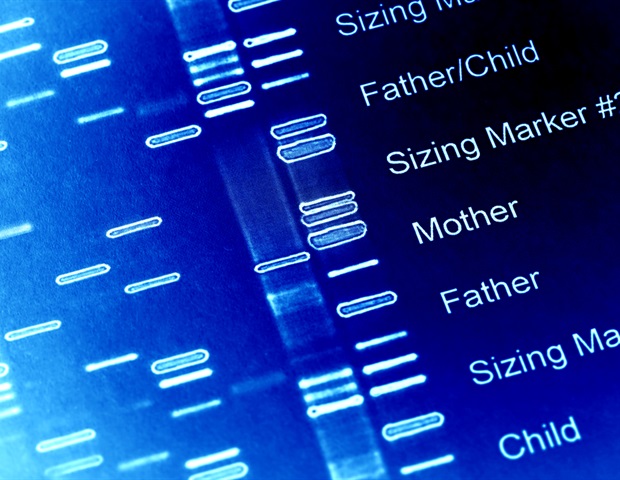
Studies have shown that our genes may be up to 70% responsible for gambling behavior. Now a new genetic test can identify who may be most predisposed to becoming hooked on gambling.
Around 90% of Brits have had a flutter at least once in their lives, whether that’s a fiver on the Grand National or a pound on a fruit machine. However, for some people, placing a bet gradually becomes more than an occasional thrill and, instead, a behavioral change that progresses to addiction.
Around 2% of people are unable to stop gambling activities that result in harm to themselves, their social network or society. ‘Gambling Disorder’ is a form of behavioral addiction with potentially severe consequences. It’s now believed that up to 70% of our gambling behavior could be down to our entire genetic makeup, rather than responding to the thrill of the moment.
A leading testing expert, Dr Avinash Hari Narayanan (MBChB), Clinical Lead at London Medical Laboratory, says: ‘Recent changes to gaming laws will help people who lose a lot of money in a short time, but far more work needs to be done to address this problem. It is important to not only examine this from a legal perspective but to understand the factors that lead people to develop gambling disorder. This includes examining patterns in our genes that demonstrate interesting links to our behaviors, traits and even susceptibilities.
‘Gambling disorder occurs when there is a repeated pattern of gambling behavior, despite negative consequences, that takes precedence over other daily activities. This can lead to a feeling of loss of control.
‘Gambling disorder primarily appears to be an impulse control disorder, with symptoms somewhat similar to substance abuse problems. Studies indicate a likely strong genetic influence on the development of gambling behaviors. Indeed, a fascinating study of identical twins and non-identical twins, published in the journal “Addiction”, found genetic factors were responsible for approximately 70% of the difference in their gambling behavior. In other words, it explained why some of us can take the occasional flutter and then forget all about it, while others become compulsive gamblers. In fact, the study found 85% of adult males’ gambling behavior was likely to be influenced by their genes.
‘Easily available genetic tests, such as London Medical Laboratory’s new DNA Genotype profile test, now provide not only fascinating information about our ancestry and the likely impact of certain medications on us, but they also reveal a potential likelihood to gambling disorder.
‘They work by identifying differences in those genes responsible for parts of our actions and behavior. For example, how well do our bodies process serotonin? Serotonin in your brain regulates your mood. It’s sometimes called your body’s natural “feel good” chemical. When serotonin is at normal levels, you feel better focused, more stable and happier. However, variations in one gene, HTR2A, are associated with susceptibility to mood disorders and obsessive-compulsive disorder. They also affect neuronal activity, perception, cognition and mood. These are all likely to impact on gambling disorder behavior, either directly or indirectly.
‘One other specific gene is also now believed to play an important part in gambling disorder: CNR1. A 2018 study published in the journal “Frontiers of Human Neuroscience” asked the question: “Are we placing a bet by ourselves or has our DNA already made the decision for us?”. It looked at a variant in our CNR1 gene called “rs1049353” and found it had an impact on addictive behavior and reward processing. The paper found people with this variant placed significantly larger bets than those without it. Its findings suggest that, to some extent, our high-level decision-making, even placing a bet, could be influenced by a single genetic variation.
Anyone who discovers that their genotype indicates that they may have inherited a predisposition for indulging in gambling activities can take active steps to help reduce risk. In fact, having an insight into our susceptibility to gambling can help us take preventive action. For example, easy access to gambling activities generally tends to increase its prevalence, so it is best to avoid those places where gambling is easier and those websites and apps where placing a bet could become a problem. It’s also important to keep proactively pursuing other activities, such as rekindling old hobbies. GambleAware provides further helpful information and has a 24-7 helpline.”
Dr Avinash Hari Narayanan (MBChB), Clinical Lead, London Medical Laboratory
‘Genetics does not absolutely determine predisposition to gambling. Environmental factors, such as family, social and cultural influences, and psychosocial factors, including personality traits, cognition and emotional state, also play key roles. These factors interact with genetics to shape an individual’s gambling behavior. Genetics is only one piece of the puzzle, yet an important one.
‘London Medical Laboratory’s new DNA Genotype Profile Test is a simple, at-home, saliva test kit. This once-in-a lifetime test gives over 300 reports: providing insights into nutrition, traits (such as potential addictions or gambling), fitness and health from our genetic blueprint. A single saliva sample allows each of us to know more about ourselves, so we can make better decisions for a healthier future.
‘The saliva test can be taken at home through the post, or at one of the many drop-in clinics that offer these tests across London and nationwide in over 95 selected pharmacies and health stores.
Qin, H., et al. (2018). Can Your DNA Influence Your Bet-Placing? The Impact of Cannabinoid Receptor 1 Gene on Gambling Tasks. Frontiers in Human Neuroscience. doi.org/10.3389/fnhum.2018.00458.